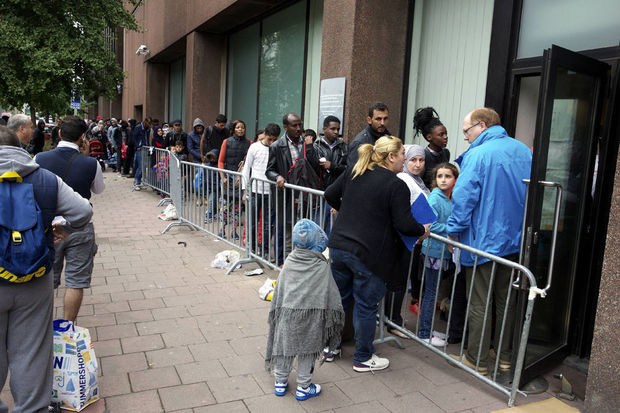Federal minister for asylum and migration Maggie De Block has announced a tightening of the rules on the reception given to asylum seekers who refuse to abide by existing rules.
The first change concerns what De Block calls “asylum shopping” – where a migrant applies for asylum in the EU member state where they first make landfall in Europe. Then, for one reason or another, that move on and re-apply once arrived in Belgium.
According to the so-called Dublin Regulation, which Belgium and another 11 member states adopted in September 1997, an asylum seeker must apply in the first safe country they arrive in, and member states should return such an asylum seeker to that first country to complete the asylum process.
However, De Block claims, member states have in general six months to process such claims, and return asylum seekers. But many asylum seekers in this category arrive in Belgium, apply for asylum and then go underground with family or friends for six months, so that the deadline passes without their case being able to be processed.
“Others change their address almost daily, to make follow-up impossible,” she told Belga. “They re-appear once the six months are up, to demand asylum once more, and then they have to be taken in.”
However the six months is only a guideline, she pointed out, and in fact the Office for Foreigners can invoke the Dublin Regulation anywhere up to 18 months after first arrival. And this provision is going to be enforced more often, De Block promised, to make it harder for asylum-shoppers and to force them to return to their first port of call. The Office will continue, though, to provide support and help for any asylum seeker who wishes to return.
At the same time, De Block intends to put in place a campaign of information to explain the new application of the rules to populations likely to provide new asylum-seekers, to make it clear how the chances of success have diminished, and to dissuade those intent on exploiting the rules.
The Office for Foreigners remains overburdened with applications, she said, not only because of the numbers of those applying for asylum, but also because of the length of time the procedure takes. And the federal agency for asylum, Fedasil, is experiencing more and more difficulty in finding accommodation for those who are waiting for their applications to be processed. One reason is the growing violent protest against asylum centres coming from local residents, such as has been the case already in Zoutleeuw in Flemish Brabant, Koksijde in West Flanders and Bilzen in Limburg province, where one centre in a former nursing home was set on fire in November.
Alan Hope
The Brussels Times

